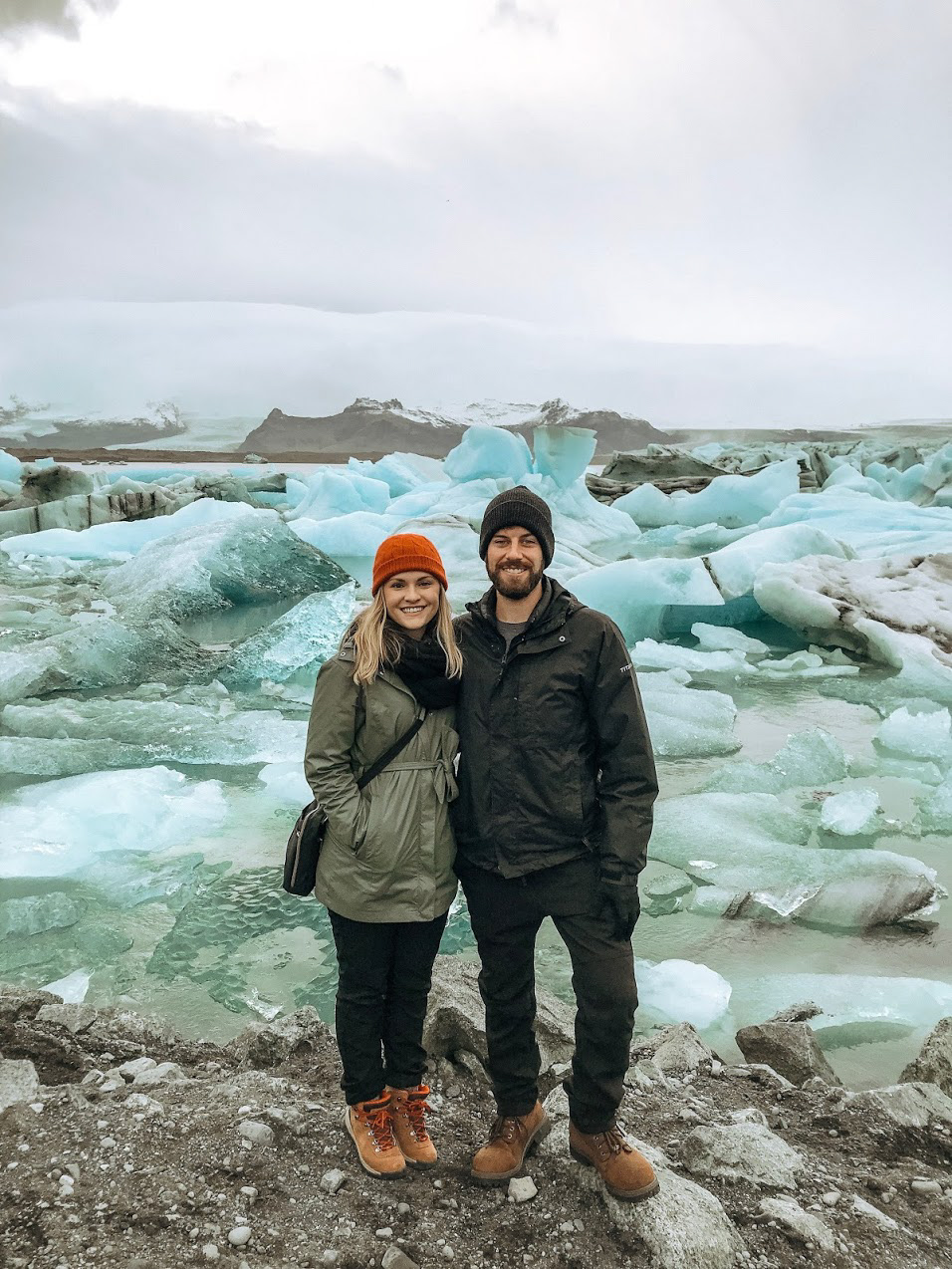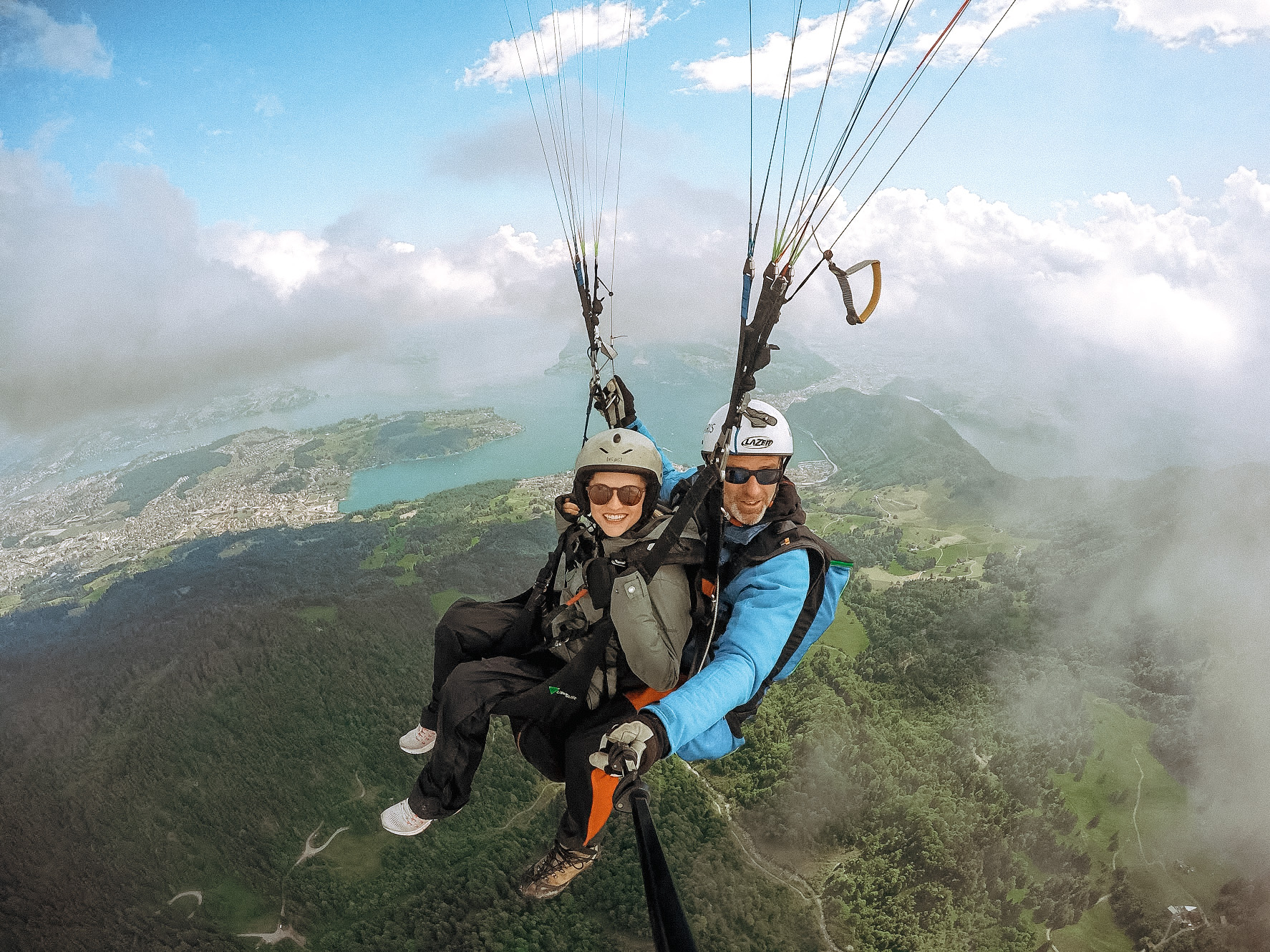Christina Menkemeller was planning her wedding and a big move when her life was turned upside down. Leaning on her faith, her new husband, and their love of travel, here she shares what her journey with NF2 has been like, how she’s used her experience to help others, and the one piece of advice she wishes someone had told her.
Children’s Tumor Foundation: Can you share your diagnosis with NF2? What triggered your first doctor appointment? How were you feeling at the time?
Christina: I was crossing the street one day, and suddenly my hearing in my left ear dropped – within seconds, it was gone. At first, I thought it was allergies, but shortly after, I started having severe vertigo. The dizziness was so bad I could hardly walk. I was terrified of what was happening to my body. After getting sick for a few hours, my friend took me to an emergency room clinic. The doctor thought it was a little bought of vertigo and gave me a medication to stop nausea and dizziness and said that my hearing would return in a few days. A month later, after getting misdiagnosed three times, with no improvement in my hearing, we finally saw a doctor who ordered an MRI, and that’s when they discovered my brain tumors.
At the time of my diagnosis, I was finishing grad school, getting married, and moving from Texas to Florida. I was devastated – this wasn’t the life I was supposed to be living. All of my excitement surrounding getting married, my new career, and my new home had been stolen from me. Especially since it meant that our first year of marriage was consumed by MRIs, hearing tests, and nine months of chemo – not exactly the “honeymoon phase” we planned on.
 How does living with NF2 impact you now?
How does living with NF2 impact you now?
Honestly, I’m lucky. Aside from some tumor growth, my hearing has remained stable. I only have one functioning hearing ear, but it’s enough to allow me to live a relatively normal life. I’ve been on and off Avastin throughout the last four years, but the only surgery I’ve had is a port placement. NF2 does affect my daily life, particularly because of my hearing loss and fatigue from treatment, but overall I’m doing well.
I’d say the biggest impact it has on my life now is emotional. Having a chronic condition is exhausting and with a disorder like NF2, it’s never-ending. That’s a pretty hard reality to accept and can feel so overwhelming if I dwell on it for too long. I would give anything not to have this condition anymore, but at the same time, we’re strangely grateful for the impact NF2 has had on our lives. Both my husband and I whole-heartedly agree that our lives are better and fuller because of my condition. If I didn’t have NF2, we would never have traveled the world together, started a nonprofit, or even have the friends that we’ve made in Orlando. We can pretty much tie my diagnosis to all of our favorite things about our lives now!
How do you overcome challenges?
Prayer and laughter – a lot of it! Without my faith, I honestly don’t know how I could have survived the last four years so well. No matter what we’re facing with this disorder, my husband and I both go to God with it every time. We’re also incredibly blessed to have a wonderful church community who has helped carry us through so much this last year.
We do everything we can to make life more fun. Whether that means traveling the world together or something as simple as eating Chuy’s Tex-Mex after every hearing test, we try to enjoy each day as much as possible.
What is the importance of travel to your life? How does it help you cope?
Travel has been life-changing for us! A year after my diagnosis, my husband and I decided to quit our jobs to travel the world. We spent 12 months abroad, and it was the best decision we ever could have made! When you have neurofibromatosis, you know that your life is just going to keep getting harder. We wanted to do everything we could while I was still able, and travel was our answer to that.
Traveling was the perfect escape! It took me away from hospitals, infusions, and MRI machines. I was never able to forget that I have NF2 completely, but I didn’t feel the full weight of it while we were abroad. It offered me a temporary second chance and helped me to rediscover who I can be despite this disorder. And not that I’m suddenly fearless now, but going on a safari, paragliding, and playing with elephants certainly helped me let go of a lot of my anxiety.
 As soon as we finished traveling, I was put back on treatment. Last year was rough, but holding onto our travel memories helped me so much. And more than anything, it’s taught me to be grateful for my condition and showed me that good things could come from it.
As soon as we finished traveling, I was put back on treatment. Last year was rough, but holding onto our travel memories helped me so much. And more than anything, it’s taught me to be grateful for my condition and showed me that good things could come from it.
What is Being Positioned? How did it come to be?
Being Positioned is the nonprofit that we launched this past November. We send adults living with critical, life-altering rare genetic disorders on an all-expenses-paid journey within the United States. We hope that each journey will serve as a turning point for our recipients and create an opportunity to improve their mental and emotional well-being. By offering individuals the chance to help plan their journey, explore new places, and take a break from their medical appointments, we hope to shift the way they view their disorder.
While we traveled, we connected with people living with NF all over the world. During our adventures, we started to see the power of traveling as a way of coping with a serious illness. We know not everyone can quit their jobs to see the world, so we decided to create something that would allow others to experience at least a small amount of the break that we received.
What advice would you give to someone recently diagnosed with NF2?
The advice I wish someone had told me when I was first diagnosed with NF2 is that your life is not over. Yes, it’s going to be harder and includes a lot of things that you wish it didn’t. But it can still be a big and beautiful adventure – if you let it! You can’t control how this disorder affects your body, but you can control how you react to it. Look for moments of gratitude about your condition in your everyday. I know it isn’t easy at first, but the more you train your brain to think that way, the more you’ll discover the good that can come from your diagnosis. I promise, if you can do that, it’ll make the bad parts of NF a lot easier to handle.
To learn more about Being Positioned or to apply for a journey, visit https://beingpositioned.org.

